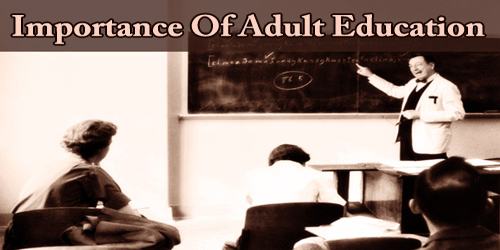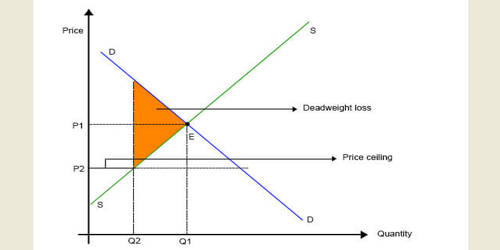Adult Education is the only tool to remove illiteracy from society. Adult education can be categorized under fundamental education, mass education of people, worker’s education, further education, basic education, community education, and social education, etc in order to educate the people at a different levels. The key role of adult education is to allow workers to develop their skills and acquire new ones. In the wake of the economic crisis, it gives adults a chance to retrain, which is particularly important to people who will need to work past pension age and need support to train for a new role.
Education is not a time-bound activity or pursuit. Both education and knowledge are an ongoing process that occurs for the entire lifetime of an individual. As the saying goes, we learn something new every day. Even formal education is not solely the privilege of children or young adults. Adult education gives mature adults the chance to learn more and hone any specific skills they wish to. Let us learn more about the importance of adult education in this essay.
Adult education consists of offering mature adults various educational options to learn new skills or develop the skills they already possess. It is the means of providing education to adults beyond the traditional school and college education we offer to them as children. Adult education can either be formal, vocational, recreational, social, etc.
Adult learning can be in any of the three contexts, i.e.:
- Formal – Structured learning that typically takes place in an education or training institution, usually with a set curriculum and carries credentials;
- Non-formal – Learning that is organized by educational institutions but non-credential. Non-formal learning opportunities may be provided in the workplace and through the activities of civil society organizations and groups;
- Informal education – Learning that goes on all the time, resulting from daily life activities related to work, family, community or leisure (e.g. community baking class).
The World Bank’s 2019 World Development Report on The Changing Nature of Work argues that adult learning is an important channel to help readjust workers’ skills to fit in the future of work and suggests ways to improve its effectiveness.
Benefits of Adult Education –
Adult education is necessary for the personal enrichment of the people, effective participation in many areas like social, political, international level affairs, professional advancement, etc. Adult education improves individual peacefulness, enhances working efficiency, leads towards progress in life, strives the learning in society. Adult education is the part time education given to the 15-35 years age group people who never attempted or some schooling before. Adult education aims to prepare adult for an social, economic, civic, and political role.
Adult education can have many benefits ranging from better health and personal well-being to greater social inclusion. It can also support the function of democratic systems and provide greater opportunities for finding new or better employment. Adult education has been shown to have a positive impact on the economy.
Adult education provides opportunities for personal growth, goal fulfillment, and socialization. Chris McAllister’s research of semi-structured interviews with older adult learners shows a motivation to communicate with people and to get out of the house to keep mentally active. Researchers have documented the social aspects of older adult education. Friendship was described as important aspects of adult learning and the classroom was seen as an important part of their social network. The development of social networks and support was found to be a key motivation of adult learners. As editor of a book entitled Adult Education and Health, Leona English claims that including health education as part of adult education makes for a healthier community.
Research has proven that taking up studies later in life has a positive effect on health: a study that focused on the 33 to 42 demographic found a number of benefits to their overall life, including giving up smoking, decreasing alcohol consumption, and exercising more.
Learning throughout life is also responsible for improved mental health, with respondents of a 2004 study confirming that they felt more self-confident, hopeful and purposeful, and had a overall higher self esteem after taking up adult education. Some governments dislike adult Education as it enables the less educated to climb societies ladder or organize themselves better to challenge the ruling classes.
While we saw the advantages and the importance of adult education, we cannot ignore that there are some notable challenges that we face with the concept of adult education. The most noteworthy is that the adults have to usually balance a full-time job and career with such educational activities. They find it difficult to find the time and the energy to balance both. Some experts claim that adult education has a long-term impact on the economy and that there is a correlation between innovation and learning at the workplace.
At other times, the person may have full-time obligations at home as well. They find it difficult to manage all their obligations and still manage to attend classes regularly. Some adults even lack the confidence and the motivation to return to the classroom after many years. The concept seems vague and foreign to them, and they may often require a nudge to re-start their education.
At the global level, the youth literacy rate is expected to reach 94% by 2030 and the adult literacy rate 90%. In low-income countries, less than 70% of adults and slightly more than 80% of youth aged 15 to 24 years are projected to have basic literacy skills by 2030.
Information Sources:
















